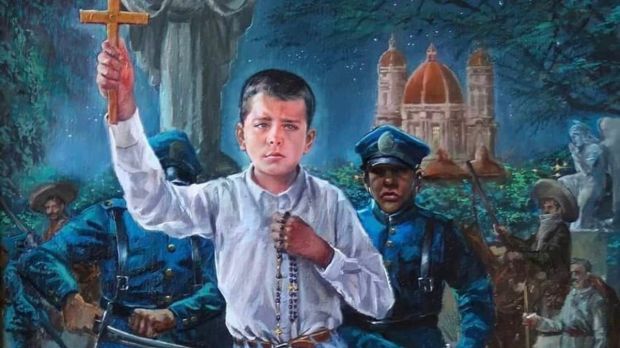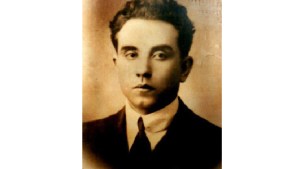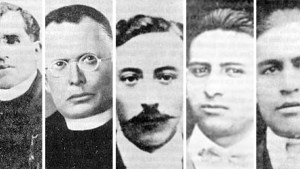It was 1926. The Mexican government’s restrictions of freedom of belief and conscience spurred the faithful to come out and defend their faith. It was a time of bullets, death, and persecutions, often conducted on horseback.
Amid the noise of war could be heard the voice of a young man, not quite 15 years old, who walked to his grave shouting “Long live Christ the King!” Refusing to apostatize, José Sánchez del Río — “Joselito” — died a martyr in the Cristero War that shook Mexico between 1926 and 1929, costing approximately 250,000 human lives.
According to historians and biographies, Joselito’s childhood was that of a normal boy; he went to school and had a knack for archer and especially for making friends. His family, from Sahuayo Michoacán, was pious and active in the local parish.
His parents’ faith was the basis of his holiness.
He learned Christian values and faith at home. His mother was strict, and very serious in everything related to the transmission of the faith. Aleteia spoke with Antonio Pelaez, author of the book Mirando al Cielo (Looking towards Heaven) and writer and director of the film of the same name (both biographical works about St. Jose Sanchez del Rio). He told Aleteia, “Behind a saint there’s always a family; one does not reach [sainthood] solely on one’s own. That devotion, that closeness to God, came from his family.”
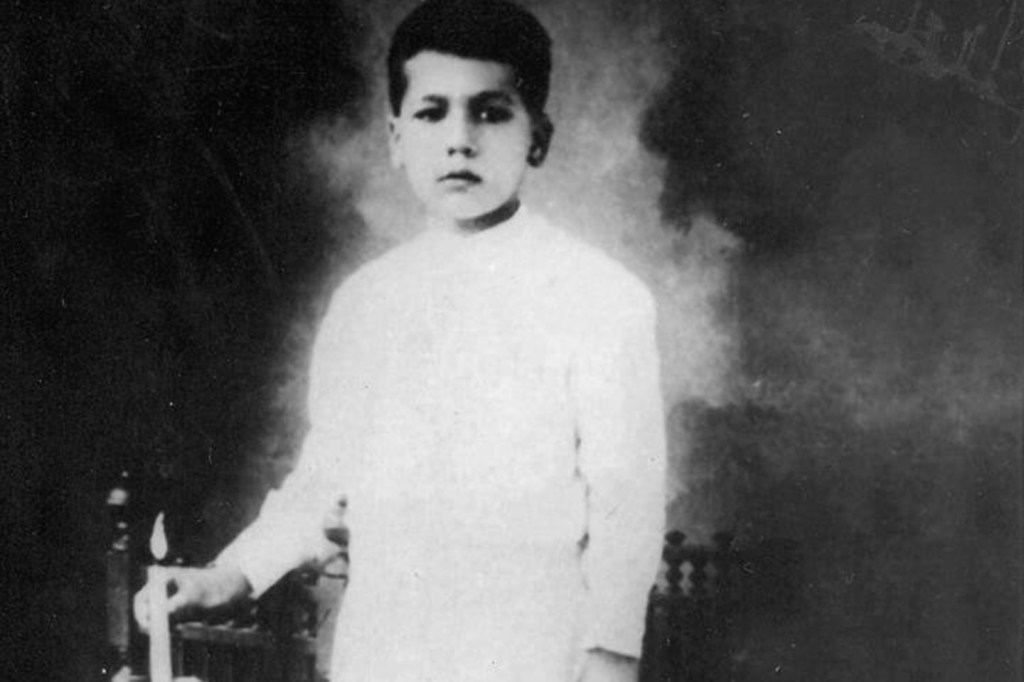
His wife Laura Peláez, producer of Mirando al Cielo, assures us that “his parents’ detachment and faith were the foundation for José to become a saint.” For this reason, his parents gave their blessing to their older sons who had decided to join the Cristeros. José, like his brothers, wanted to defend his beliefs, but his parents refused because of his young age. However, faced with the future saint’s insistence and his conviction that “it had never been so easy to earn Heaven,” his parents had no choice. Joselito left home with his parents’ blessing.
A lesson about vocations
Antonio highlights how St. José’s example speaks to us today about young people having vocations to religious life and priesthood. “These are very important decisions, made in moments of intimacy with God, in prayer. Many times as parents we don’t understand that feeling and that call that our children may have to follow a priestly vocation or religious life, but I think it’s very important to support them.”
He adds that supporting the vocation of a son is beneficial for the whole Church, but the fruits are immense for the family too. In this way, the life of St. José Sánchez del Río teaches us that “it’s important to always support God’s call to our children.”
“Resign yourself to God’s will. I’m dying very happy.”
Having the approval of his parents, José still had to convince the leader of the Cristeros, who also refused his request at first. But José did not stop. He insisted and offered himself as an assistant, which the leader accepted. At the camp, Joselito encouraged the daily praying of the rosary and cheered up the rest of his companions, who nicknamed him Tarcisius after the young Roman saint and martyr.
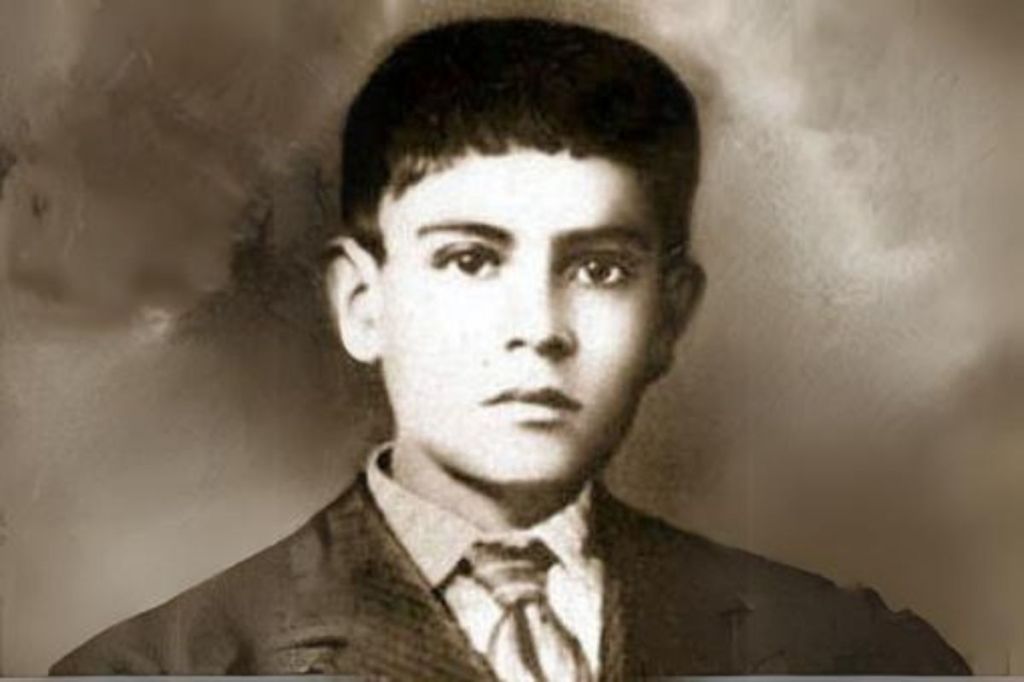
On February 6, 1928, he was taken prisoner by government troops. He was easy to catch because he had given his horse to his general while they were in battle. From prison, before his death, he wrote to his mother:
I was taken prisoner in combat today. At this time, I believe I am going to die, but nothing matters, Mom. Resign yourself to God’s will. I’m dying very happy because I’m dying in the fight next to Our Lord. Don’t worry about my death; that is what mortifies me. Rather tell my other brothers to follow the example of the youngest, and you, do the will of God. Have courage and send me your blessing together with that of my father. Greet everyone for me for the last time, and receive for the last time the heart of your son who loves you so much and wanted to see you before dying.
Martyrdom
At 11:00 p.m. on February 10, José Sánchez del Rio walked to the cemetery with the soles of his feet flayed. Even in pain, José did not deny his faith. Standing in front of his open grave, and without giving in to those who invited him to apostatize — among them his godfather — he shouted for the last time, “Long live Christ the King! Long live the Virgin of Guadalupe!”
José was declared a saint by Pope Francis on October 16, 2016. His life is one of the many testimonies of Mexicans contributing to the transmission of the faith in the world.
For Antonio, who has helped spread the life of this patron saint of children and youth around the world, “the faith in Mexico is special.” This is not only because of Joselito and others like him, but also thanks to Mexico’s priests, religious sisters, and faithful who work for the Universal Church.
A model for today’s families
Laura and Antonio agree that the life of Joselito and his family remains relevant to many challenges we face today: family life, dialogue, and the importance of friendship and of leading a coherent life. In this way, it’s an opportunity for parents to ask themselves what they are passing on to their children.
If we parents prepare our children to make the decisions they’re going to face in the light of their prayer life, formation, and sacramental life, I don’t think there’s a better way to protect them and give them a boost to be happy.
Laura Pelaez concludes that, as families, we can draw inspiration from the Sánchez del Río family to “make God part of our family life.” We shouldn’t “leave God for Sundays at Mass but ask him to accompany us in our daily life.
